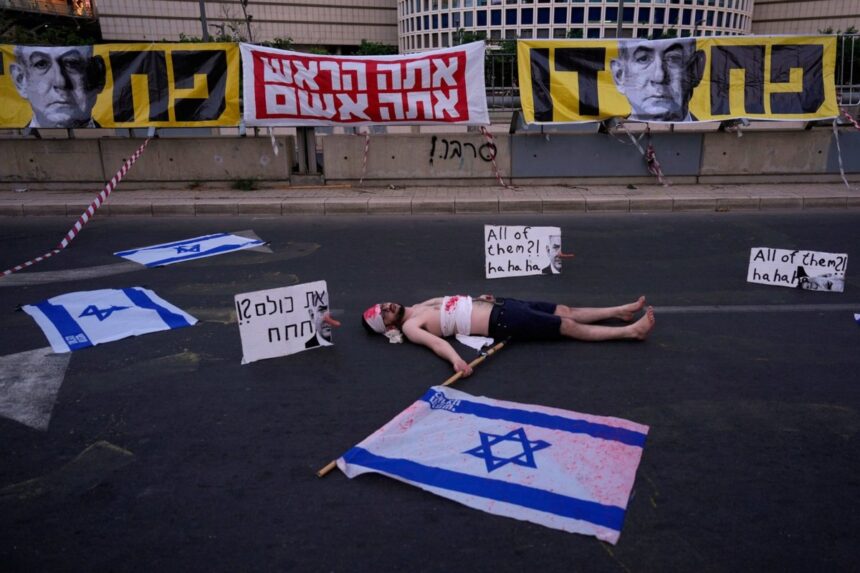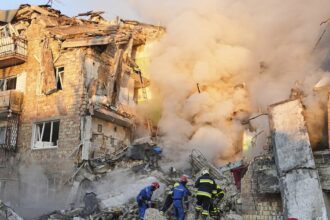The fragile hopes for peace in Gaza faced another setback yesterday as Hamas presented a modified version of the ceasefire proposal that had been carefully crafted through months of international mediation. The revisions, which the militant group characterized as positive amendments, were swiftly deemed unacceptable by US envoy Brett McGurk, highlighting the persistent gap between the warring parties even after nearly eight months of devastating conflict.
“What we’re witnessing is not simply a negotiation stalemate, but a fundamental disagreement about what constitutes a viable path to peace,” said Daniel Shapiro, former US ambassador to Israel, speaking to CO24 by phone. “Hamas continues to insist on guarantees that Israel has repeatedly rejected, while Israeli officials maintain that any deal must prevent Hamas from rebuilding its military capabilities.”
The proposal in question, originally outlined in late May, was built on a framework developed by US President Joe Biden. It envisioned a three-phase process: an initial six-week ceasefire with partial withdrawal of Israeli forces and release of some hostages, followed by negotiations for a permanent end to hostilities, and culminating in Gaza’s reconstruction.
Hamas officials, speaking from Doha, Qatar, indicated their revisions focus primarily on implementation mechanisms rather than core principles. “We are not rejecting the agreement outright,” said a senior Hamas official who requested anonymity. “We seek guarantees that once the first phase begins, Israel cannot simply walk away from its commitments regarding a permanent ceasefire.”
The conflict, which erupted after Hamas’ October 7 attack on southern Israel that killed approximately 1,200 people and led to the capture of about 250 hostages, has resulted in catastrophic humanitarian conditions in Gaza. According to the Gaza Health Ministry, over 37,000 Palestinians have been killed, with infrastructure decimated and approximately 90% of the population displaced.
International aid organizations have warned that the situation in Gaza has reached critical levels. “We’re seeing unprecedented rates of malnutrition and disease spreading through overcrowded shelters,” reported Médecins Sans Frontières representative Sarah Mitchell. “Every day without a ceasefire translates to more preventable deaths.”
Israeli Prime Minister Benjamin Netanyahu has maintained that military pressure is necessary to secure the release of the remaining hostages and dismantle Hamas’ governance infrastructure. “We cannot allow terrorists who attacked us to dictate terms,” Netanyahu stated in a recent address to the Knesset, though domestic pressure for a deal has intensified following protests by hostage families.
The Biden administration, which has devoted significant diplomatic resources to mediating the conflict, expressed frustration at the latest developments. “We’ve presented a balanced framework that addresses legitimate security concerns while providing humanitarian relief,” said State Department spokesperson Matthew Miller. “Continuous amendments risk derailing the entire process.”
Regional analysts note that external factors are increasingly influencing the negotiations. “Iran’s backing of Hamas and recent tensions in Lebanon create a complex web of interests that extend beyond Gaza itself,” explained Dr. Amira Hassan, Middle East specialist at the University of Toronto. “Any sustainable agreement must account for these regional dynamics.”
Financial markets have responded nervously to the continued instability, with oil prices fluctuating on fears that the conflict could spread beyond Gaza’s borders. Economic analysts at Goldman Sachs estimate that prolonged regional instability could impact global economic growth by 0.3% in the coming year.
As international mediators from Egypt, Qatar, and the United States continue their efforts to salvage the ceasefire talks, ordinary Palestinians and Israelis remain caught in a cycle of violence with no clear end in sight. The question now facing all parties is whether the political will exists to make the necessary compromises—or if Gaza is destined to endure more months of a conflict that has already claimed too many lives.
What would constitute an acceptable middle ground that addresses both Israel’s security concerns and Palestinians’ need for humanitarian relief and eventual self-governance?

























